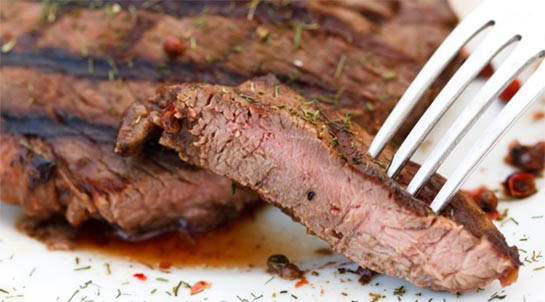As the appetite for beef increases among Chinese consumers in the PRC, an additional 2.2 million tons will be needed by 2025 to meet demand, according to a new report issued by Rabobank entitled Moving Globally – What Role Will China Play in the Global Beef Market? Imports are expected to play an increasingly important role in filling the supply gap.
 Chenjun Pan of Rabobank reports that value-added beef products will continue to gain popularity among consumers in China, and increased imports will be required to satisfy demand. Beef prices in China have been increasing and are now more than four times higher than in 2000, while pork prices have doubled, and poultry prices have increased 1.8 times during the same period, figures Chenjun Pan. The senior analyst of animal protein trends at Rabobank says that given the faster growth of beef consumption, this reflects consumers’ higher tolerance for soaring beef prices versus other meats.
Chenjun Pan of Rabobank reports that value-added beef products will continue to gain popularity among consumers in China, and increased imports will be required to satisfy demand. Beef prices in China have been increasing and are now more than four times higher than in 2000, while pork prices have doubled, and poultry prices have increased 1.8 times during the same period, figures Chenjun Pan. The senior analyst of animal protein trends at Rabobank says that given the faster growth of beef consumption, this reflects consumers’ higher tolerance for soaring beef prices versus other meats.
The current supply issue means there is limited room for beef prices to go down. Instead, there is a high possibility that they will continue to rise periodically, driven by the supply shortage.
There are three primary channels in which consumers in the PRC may purchase beef products: the foodservice sector, institutional segment and the retail market. Within each sector there are several sub-channels.
“Strong demand from the foodservice and retail market channels provide opportunities for both Chinese and foreign companies in the further processing sector,” said Ms. Pan. “Chinese companies will play an increasingly important role in the world beef market by making more outbound investments in the coming decade.”

20% Import Market Share Probable
Local production will likely meet 80% of demand, with the remaining 20% supplied by imports. While the mass market remains commodity-based and price-driven, the emergence of niche markets demonstrates differentiated demand and consumers’ ability to pay a premium for value-added items. The new dynamics in the consumer market will offer global beef companies – typically suppliers of bulk beef to China – even more incentive to focus on value creation and branding.
In the meantime, Chinese beef companies will move globally to seek consistent supply and learn from their Western counterparts. This trend will enable China’s beef players and global companies to actively work together and consolidate global resources and markets.





